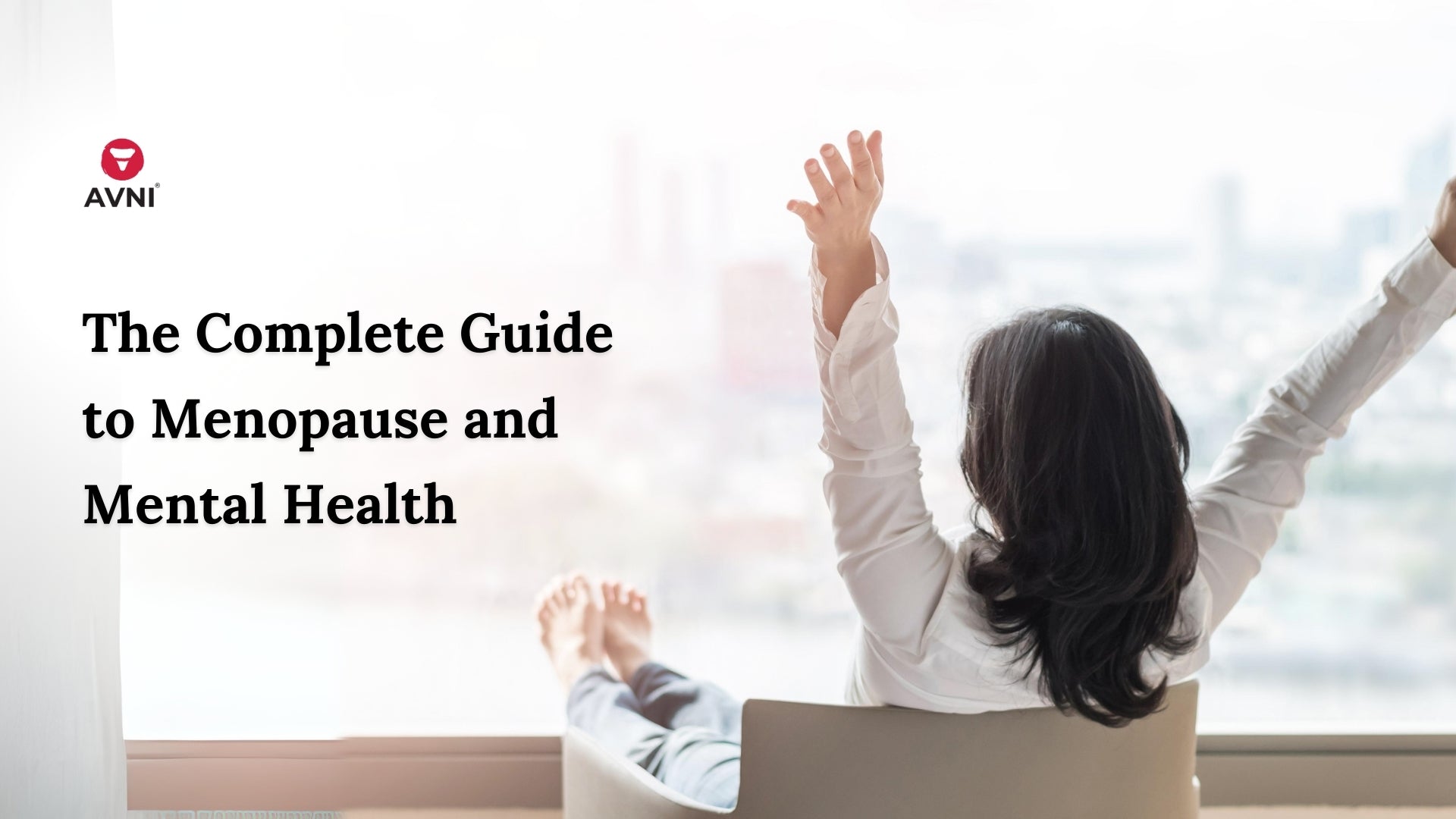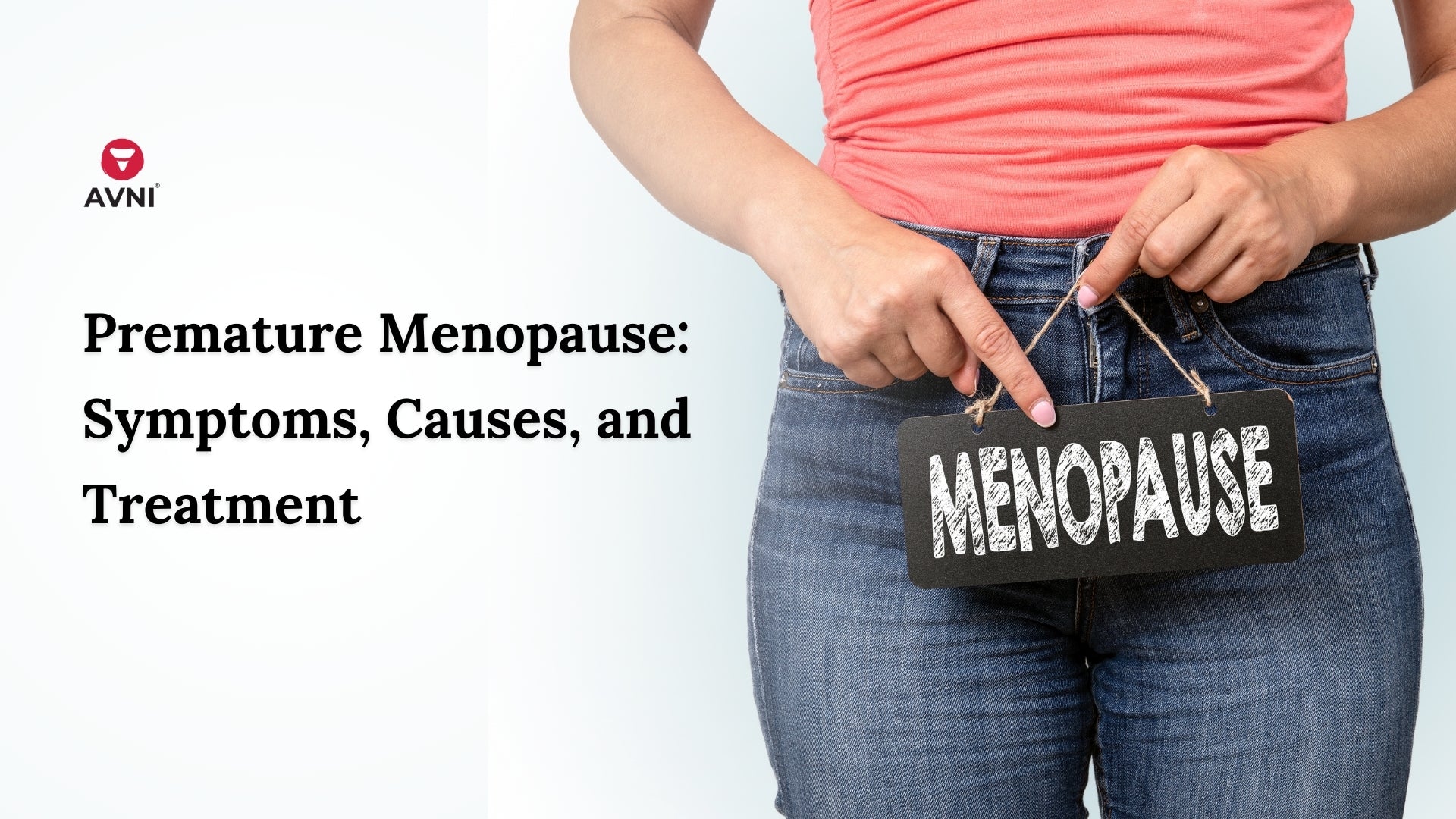
The Complete Guide to Menopause and Mental Health
Introduction - Why is there a Connection Between Menopause and Mental Health?
Menopause is a natural process that happens to every woman. It is not a disease and it does not have any adverse effects on the body - not that is unnatural to say the least.
It is a period of life when the body stops producing estrogen and progesterone which are the hormones responsible for menstruation.
In simple words, menopause starts when your periods stop. It is a transition period which often begins between the ages 45 to 55 and is confirmed when the body does not experience a menstrual cycle in 12 months.

Some of the symptoms of menopause are hot flashes, emotional disruptions due to hormonal imbalance, reduced energy levels and libido and susceptibility to insomnia.
Women who have just gone through menopause will have an increased risk of developing mental health problems.
How is menopause connected to depression and other mental ailments?
Menopause affects the hormonal balance of the human body, causing a drop in the serotonin levels, leading to anxiety and depression. The change in the estrogen and progesterone levels also lead to mood swings and tiredness.
Due to a drop in estrogen and progesterone levels the body’s ability to produce serotonin depletes, leading to mental health problems are depression, anxiety, and sleep disorders.
Ways to Treat Mood Swings and Depression During Menopause
Depression is a common mental health condition that affects millions of people around the world. Depression during menopause is a form of depression that can affect women in their late 40s or early 50s.
Mood swings and depression during menopause can be caused by hormonal changes. In order to treat these mood swings and depression, you need to understand the cause of it.
The first step is to find out if there is a physical cause for your mood swings or depression during menopause. If there is a physical cause, then you need to take care of it so that your mood will improve. One of the physical reasons that can cause depression are conditions affecting the nervous system, sleep troubles, chronic pain, and low blood sugar to name a few.
The second step is to find out if there are certain things that trigger your mood swings or depression during menopause. If there are certain things that trigger your mood, then you should avoid those triggers as much as possible in order to reduce the severity of the mood swings or depression during menopause. Among the major leading to depression found in most menopausal popoulation is a mid life crisis like the end of a relationship, death of a loved one, an empty nest, trauma, etc.
The third step is to make sure that you have healthy coping mechanisms in place for when your mood starts swinging up and down or when it gets too low. Some examples of healthy coping mechanisms are exercise, meditation, reading, hobbies etc. However, it is important to note these are coping mechanisms and not alternatives for expert opinion or medical care. While these lifestyle changes help streamline depressive episodes, it is advisable to visit a licensed practitioner for solutions.
Treating depression in menopause
There are many ways to treat depression during menopause, which include: antidepressants, psychotherapy, and hormone therapy.
Antidepressants
Meant for treating depression, these antidepressants are often recommended to cope with major depression episodes during menopause. This medication has an impact on the chemical called the neurotransmitters that carry messages between the brain cells.
Particularly in cases on menopausal depression, these antidepressents may provide relief from symptoms like hot flashes, night sweats and skin flushing.
While antidepressants are often recommended by experts they are not without their side-effects. Some of the most common ones are:
- Nausea
- Restlessness
- Insomnia
- Low sex-drive
- Cottonmouth
In severe cases, some of the symptoms may include:
- Constipation
- Blurred vision
- Drowsiness
- Low blood pressure
Psychotherapy
In this line of treatment, the mind is trained to help the body cope with the physical and emotional response of menopause. Since menopause and perimenopause is a transition period for the body where hormonal changes are its peak, it is important for the person to have a strong mental front to embrace these changes which also help reduce the impact of this change.
While psychotherapy still needs medical backing and research, it helps overcome emotional issues such as the following:
- Low sex drive
- Depression and other mental issues
- Less motivation
- Low energy drive
- Irritability
- Anxiety and panic
- Inability to concentrate
- Pain management
Hormonal Therapy
Hormonal therapy, more specifically speaking the estrogen replacement therapy, is often suggested by doctors and expert to cope with the physical and emotional changes caused due to menopause. This therapy is consumed in the form of a pill or a patch. However, it is important to note that this therapy might increase one’s chances of breast cancer and blood clots.
What the Future Holds for Treatment & Prevention Methods of Menopausal-related Mental Illnesses
It has been found that menopausal-related mental illness can be treated with hormone replacement therapy or antidepressants. But these treatments have side effects too, so it's important to talk to your doctor before starting any treatment plan for this condition.
In the future, researchers are looking at ways to use magnetic stimulation of the brain in order for women to experience relief from these symptoms without having to take medication or undergo surgery




Leave a comment
This site is protected by reCAPTCHA and the Google Privacy Policy and Terms of Service apply.